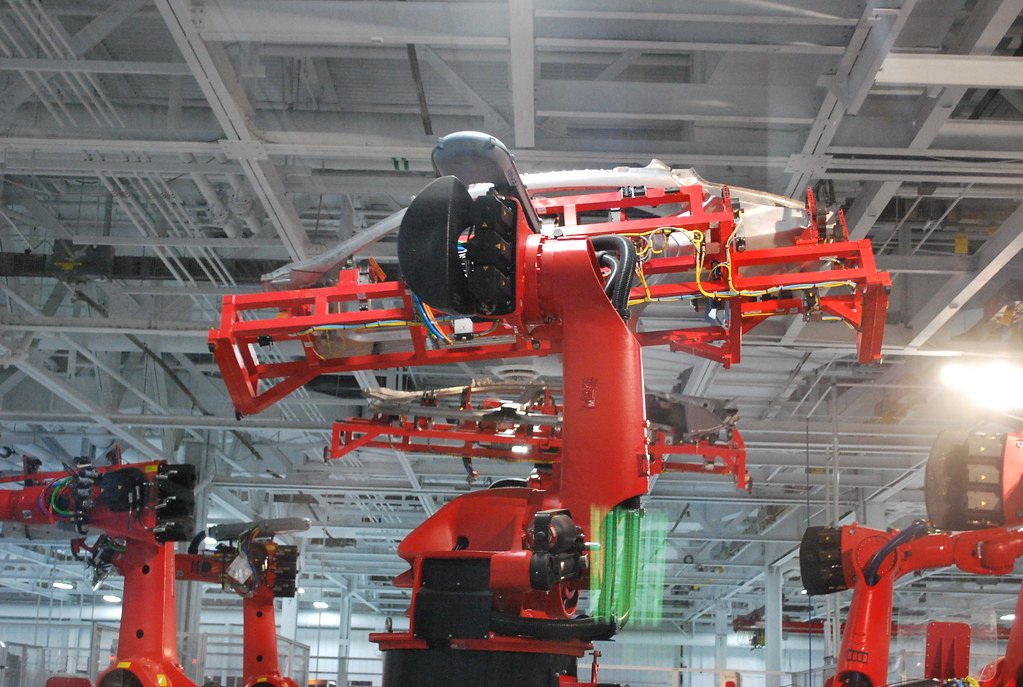In a recent announcement, ABB, a leading Swiss engineering and technology group, revealed its decision to allocate a sum of $280 million to establish a new robotics factory in Sweden. This strategic move comes as a response to the escalating demand from firms that are increasingly shifting their production bases from Asia. One primary reason behind such a transition is the recurrent disruptions and blockages witnessed in the supply chains, a significant concern for industries across the globe.
While the global economic scenario continually evolves, the tension intensifying between two of the world’s major players, Washington and Beijing, has ushered in a wave of reconsideration. Many manufacturers, along with several entities relying on robots, are actively contemplating the realignment of their manufacturing bases, moving away from China. Such geopolitically-induced business decisions are dramatically influencing the global supply chain and the manufacturing landscape.
When approached about this phenomenon, ABB’s Chief Executive, Bjorn Rosengren, confirmed the observable trend towards ‘re-shoring.’ He mentioned that while this transition is evident, it’s essential to understand that ABB continues to regard China as a pivotal player. Elaborating on this observation, he stated, “Certain corporations, particularly those based in America, are likely expressing reservations about escalating their investments in China.” As an alternative, they seem more inclined to explore other Asian nations as potential hubs for their ventures.
This change in investment inclination is not solely geopolitically driven. China, which was hit significantly by the COVID-19 pandemic, has exhibited an economic recovery pace that lags behind initial anticipations. Addressing this, Rosengren pointed out that despite the short-term hurdles faced by the Chinese economy, he remains steadfast in his optimism about China’s long-range economic prospects. “We’re convinced that, while China will primarily focus on bolstering its internal market, its growth trajectory will remain robust. The notion of ‘China for the world’ might undergo a shift, emphasizing ‘China for China’,” he expressed.
China’s position in the global robotic industry is undeniable. Holding the title of the world’s largest market for robots, it’s a domain that ABB cannot overlook. Rosengren confirmed that the company is not entertaining thoughts of scaling down its investments in China. As evidence, he pointed to the company’s recent ventures in the country. Last year, the Swiss firm inaugurated a robotics factory in Shanghai, involving an investment of $150 million. In parallel, the company also undertook the expansion of its facility located in the United States.
The upcoming Swedish plant, positioned in Vasteras, is poised to operate in tandem with the existing facilities. Its primary focus will be on catering to the European clientele. The scheduled commencement of this factory’s operations is 2026. Projections indicate that this new facility’s inception will propel ABB’s production capabilities by a staggering 50%. Such an enhancement is in line with the anticipated surge in robotic demand across Europe, estimated at an annual increase of 7%.
Underlining the significance of the robotics division within the company’s portfolio, Rosengren stated, “Robotics is undoubtedly an integral facet of ABB.” He expressed confidence that the recent upswing in the division’s output is not a fleeting phase but is indicative of a long-lasting positive trend.
The reverberations of the COVID-19 pandemic have been manifold. One of its notable consequences has been on the global supply chain. Several clients, in the aftermath of the pandemic, have expressed their preference for localizing their supply sources. This is particularly true for those who bore the brunt of supply chain stagnations during the peak of the pandemic.
In the global competitive landscape, ABB stands toe-to-toe with industry giants such as Japan’s Fanuc Corp and the Chinese-owned Kuka. The company’s illustrious clientele comprises industry behemoths like BMW, Scania, and Volkswagen.
Reflecting on the broader industry trend, Rosengren observed, “There’s a discernible shift in the globalization momentum.” He went on to add, “Today, companies are introspecting more deeply into their supply chains. The narrative is evolving from a global outreach to a more localized approach.”
In conclusion, ABB’s investment in Sweden is not an isolated business decision. It’s emblematic of the broader trends and shifts in the global manufacturing and supply chain domain. As corporations increasingly pivot towards local for local strategies, one can anticipate a profound transformation in the way industries operate and serve their markets.
Read More:
